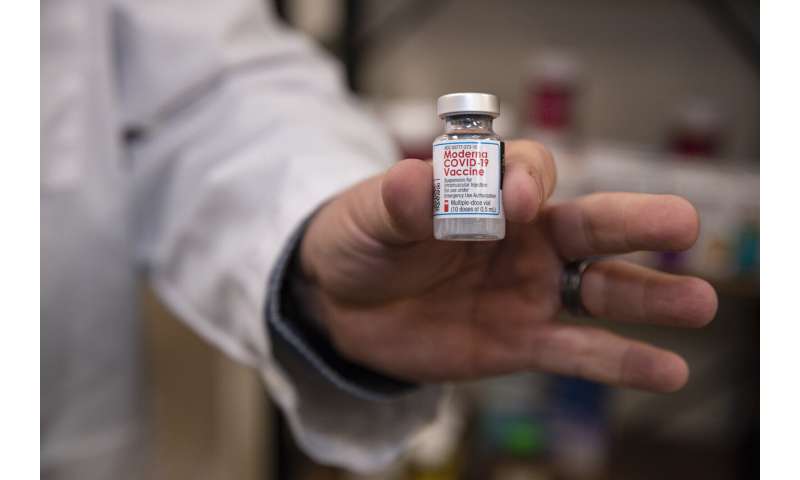Home » Health News »
EU agency ponders approval for Moderna’s COVID-19 vaccine

The European Union’s medicines agency was meeting Wednesday to consider giving the green light to Moderna Inc.’s COVID-19 vaccine, a decision that would give the 27-nation bloc a second vaccine to use in the desperate battle to tame the virus rampaging across the continent.
The meeting of the European Medicines Agency’s human medicines committee (CHMP) comes amid high rates of infections in many EU countries and strong criticism of the slow pace of vaccinations across the region of some 450 million people.
The EMA has already approved a coronavirus vaccine made by American drugmaker Pfizer and Germany’s BioNTech. Both vaccines require giving people two shots.
Ahead of the meeting on the Moderna vaccine, the agency said in a tweet that its experts were “working hard to clarify all outstanding issues with the company.” It did not elaborate on what those issues were. Moderna also declined to comment.
Early results of large, still unfinished studies show both the Moderna and the Pfizer-BioNTech vaccines appear safe and strongly protective, although Moderna’s is easier to handle since it doesn’t need to be stored at ultra-frozen temperatures.
The United States, Canada and Israel have already approved use of the Moderna vaccine. The U.S. gave it the green light for emergency use in people over 18 years on Dec. 18, followed by Canada five days later with an interim authorization also for people over 18. Israel authorized the vaccine on Monday.

If the EU agency joins the list, its decision will have to be confirmed by the bloc’s executive commission in Brussels before vaccinations with the Moderna shot can begin.
Moderna said Monday that it is increasing its estimate for global vaccine production in 2021 from 500 to 600 million doses. The company said it is “continuing to invest and add staff to build up to potentially 1 billion doses for 2021.”
Both Moderna’s and Pfizer-BioNTech’s shots are mRNA vaccines, made with a groundbreaking new technology. They don’t contain any coronavirus—meaning they cannot cause infection. Instead, they use a piece of genetic code that trains the immune system to recognize the spike protein on the surface of the virus, ready to attack if the real thing comes along.
Source: Read Full Article



